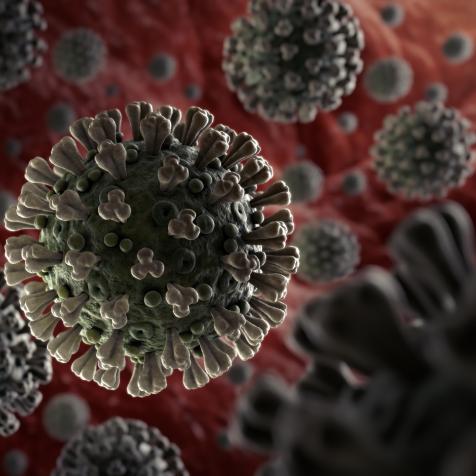
San Diego Historical Society
What Would Happen If You Stayed Awake for 11 Days?
It's pretty dangerous to stay awake for days and weeks on end.
Here's something you might not know: the Guinness Book of World Records doesn't accept entries for the longest period spent without sleeping. That's because it's pretty dangerous to stay awake for days and weeks on end. But they did at one time, and what happened to the current record holder is the very reason they stopped taking submissions. Meet Randy Gardner.
You Snooze, You Lose
In late December 1963, 17-year-old Randy Gardner enlisted two of his friends, Bruce McAllister and Joe Marciano, to help him pull off a project that was sure to win the science fair: he'd beat the record for most days without sleep. The question of how long a person could go without sleep was a matter of some debate in those days. Many people believed that a lack of sleep could be immediately fatal. A high-profile experiment once kept cats awake for 15 days straight, and let's just say that it didn't end well for any of the cats. But as McAllister would tell the BBC many years later, that particularly cruel study failed to take into account the fact that the cats weren't just kept awake — they were kept awake with stimulants that could have been wreaking havoc on their internal systems.
In any case, the three friends were determined to win that science fair badge, and they were willing to risk their lives to do it. The experiment became something of a national sensation. In fact, for a short time, it was the third most written-about story in the American press, after the assassination of President Kennedy and the Beatles' historic trip to the States. So perhaps it's not surprising that a bonafide sleep researcher named Dr. William Dement heard about the experiment and came to lend the boys his expertise.
In the end, Gardner stayed up for 264.4 hours: about 11 days and 25 minutes. And the whole time, Dement and his co-conspirators tracked exactly how his mind was doing with a series of cognitive and sensory tests. After two days without sleeping, he began to have problems repeating simple tongue-twisters and he stopped being able to identify objects by touch. His senses seemed to heighten, and he became sensitive to strong smells (at one point, he told McAllister, "Don't make me smell that, I can't stand the smell," the BBC reports). By the fifth day, he was hallucinating, and he soon started having trouble forming short-term memories. But for all that he suffered during his ordeal, not everything went into decline. The boys used physical activities to keep him awake, and his basketball game actually improved over the course of that sleepless week and a half.

San Diego Historical Society

Getty Images

Getty Images

Getty Images
Sleepless Sixty Years Later
A few things happened after the experiment was over. First, the good news. Gardner and the other boys won first place in that science fair, he had his achievement immortalized in the Guinness Book of World records, and, of course, he finally got to get some shuteye. About 14 hours of it, as a matter of fact.
But here's the bad news: As the years went by, Gardner began to regret the experiment more and more. In the late 2000s, Gardner began to experience insomnia on a nightly basis. There's no way to say for sure, but he's convinced the reason was his teenage stunt. He suffered from a recurring inability to sleep for several years until finally settling into a more reliable routine — but still, he only enjoys about 6 hours of sleep per night these days.
This article first appeared on Curiosity.com.


















